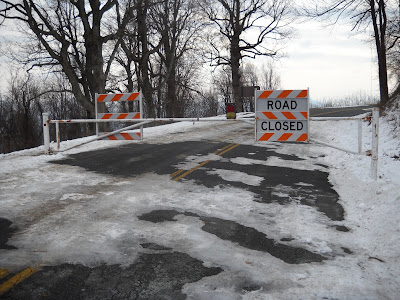Many people assume that during the winter park rangers are not busy due to snow and ice closing many areas to the general public. Winter is when the majority of legal hunting seasons occur. Even though most National Park Areas are closed to hunting, this does not preclude the necessity of park rangers taking on the role of game wardens during this time of year. In reality, hunting does occur in and around our parks and park rangers have to deal with several types of people in involved with hunting.
The first group is the honest outdoorsmen who make the extra effort to obtain information so they can successfully complete their hunt in a proper and sportsmanlike manner. They want to have the rules explained to them, look at maps, obtain the proper permits, and identify lands that they can legally hunt on. This is the largest group.
There are also well meaning but unprepared and uneducated hunters who do not take the time to gather the information outlined above. They often end up hunting in parks by mistake or ignorance more than by intent or malice.
Next you have what I call the lazy hunters who want to find locations where they do not have to physically stress themselves to find game. The most attractive location for them is often our parks where tour roads and trails run through areas that place game within easy reach. These illegal hunters are also drawn to the parks looking for bigger trophies and bragging rights.
Then you have the true poachers who are intentionally and premeditatedly hunting in National Park Areas. They are most often motivated by greed in the form of money or peer status (sometimes described as social power). During my career I contacted such individuals that were killing deer and removing just the head or antlers and leaving the rest, killing bears and only removing the parts that they could sell, and even killing wildlife and leaving it where it lay just so they can increase their kill count for purposes of boasting or winning a bet.
The challenge for National Park Rangers when they encounter hunters within a park is to determine which category the suspect falls into. What was their intent, knowledge of the area and laws, and are they being truthful about why they are in the park. In the past it has been quite easy for suspects to come up with excuses and explanations in advance or by time for court.
Now with the upcoming change in the firearms regulations that will allow people to carry weapons in our National Park Areas, the challenge for a park ranger to place an armed person into one of these categories will be much more difficult. It will make it easier for the persons who fall into the later two categories to get away with killing wildlife. But as in the past, park rangers will find a way to do their duty and need to adopt new techniques, skills, and technology to accomplish the mission of the National Park Service to preserve our resources for future generations.















